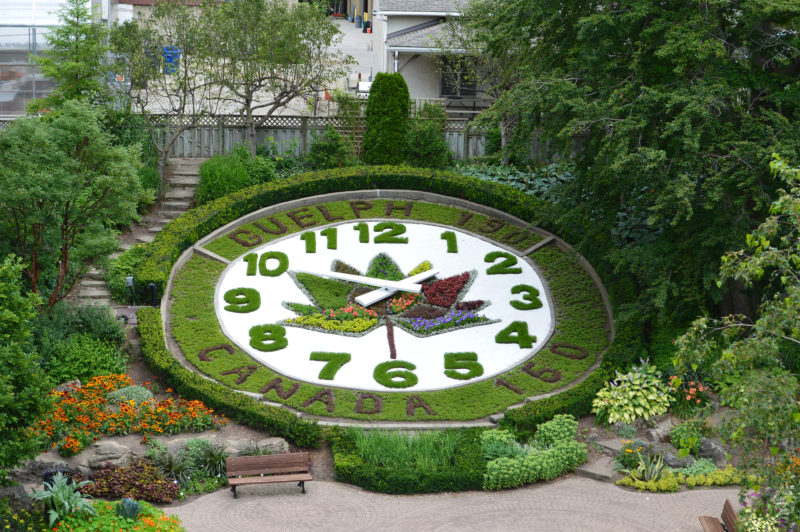1. Take a photo at Locomotive 6167 (# 59 from the Guelph Tour Guide)
Built in 1940, Locomotive 6167 was one of 203 "Northern" locomotives used by Canadian National Railways (CN) for passenger and freight service. No. 6167 was based in the Moncton, New Brunswick area and, during the Second World War, it hauled troops and supplies to the eastern ports. On July 6, 1943, 6167 was involved in a full-speed head-on collision with Locomotive 6166, killing three and injuring many others. Damage to 6167 was extensive but, due to a critical war-time shortage of locomotives, it was repaired and continued in service until 1960 when CN replaced all of its steam engines with diesel engines. It was then re-purposed for special excursion trips through Ontario, becoming known as Canada's "most photographed locomotive". In 1967, CN presented 6167 to the City of Guelph in honour of Canada's centennial.
2. Ride the antique carousel at Riverside Park (#63 from the Guelph Tour Guide)
The Allan Herschell Company manufactured carousels and other amusement
park rides, specializing in the production of portable machines which could be
used by traveling carnival operators. The company produced over 3000 hand
carved wooden carousels that were shipped worldwide. The carousel in Guelph’s
Riverside Park is one of only 148 antique wooden carousels still in existence
in the United States and Canada today.
The 100 year old carousel features three rows of jumping
stallions, chariots and other figures, operating at 4.5 revolutions per minute.
The carousel welcomes visitors seasonally from Victoria Day until
mid-September, weather permitting. Although it was closed while we were there,
I had fun playing on the carousel horse in front of the mural
depicting days gone by,
Wondering why the word Carrousel in the above photo has two
'r's instead of the usual one? Or how carousels came into existence in
the first place? Check out this entry on Wikipedia: https://en.wikipedia.org/wiki/Carousel
In 1992, 400 volunteers from the Timber Framers Guild worked near the confluence of the Eramosa and Speed Rivers building this covered bridge using an 1888 design. The building of the bridge included nearly 400 people raising by hand the two large side trusses of the bridge, assembling the roof, and then winching and pushing the completed bridge into position over the river. This is a beautiful lattice-covered bridge and part of the Royal Recreation Trail.
 |
| Wooden pegs were used to build the bridge |
 |
| "This post and the one opposite were cut from a willow tree that grew on this site" |
 |
| View from one side of the bridge |
 |
| View of the bridge from the other side |
4. Visit the flower clock in Riverside Park (#73 from the Guelph Tour Guide)
The floral clock is situated in Riverside Park. When we were there it was fall going on winter therefore all the flowers had been removed for the season. In May, before we left Guelph, the flowers had still not been planted. In the summer months it is beautiful. Many wedding parties have their pictures taken here.
 |
| Here is a photo of the clock fully planted. |
 |
| Sculpture with "G" on top |
5. Have High Tea at the Boathouse (we added this one to the list)
 |
| A & P stopped outside for a photo op. |
I would highly recommend making a reservation to have a relaxing afternoon at the Boathouse for High Tea. Plus the Boathouse is a one minute stroll to the Covered Bridge. See above.




















No comments:
Post a Comment